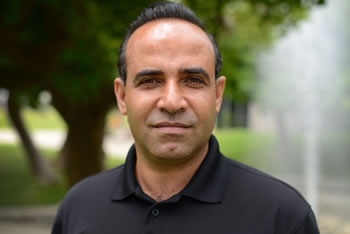Ahmed Alwishah - Divine Knowledge and Human self-Awareness
Duration: 1 hour 29 mins
Share this media item:
Embed this media item:
Embed this media item:
About this item

| Description: | The nature of Divine knowledge is a problem that has preoccupied philosophers in the monotheistic traditions; the speaker challenges the view that certain knowledge, such as self-awareness, cannot, by definition, be accessible to the divine intellect. |
|---|
| Created: | 2014-05-09 14:21 | ||
|---|---|---|---|
| Collection: | Clare Hall Colloquium | ||
| Publisher: | Clare Hall | ||
| Copyright: | Clare Hall | ||
| Language: | eng (English) | ||
| Keywords: | theology; islam; Avicenna; theodicy; | ||
| Credits: |
|
||
| Abstract: | The nature of Divine knowledge is a philosophical problem that preoccupied many theologians and philosophers in the monotheistic traditions, and the Islamic tradition in particular.
In the 11th century, Avicenna, a Muslim philosopher, presented a distinctive and untraditional view of divine knowledge that influenced not only the Islamic world but also the Jewish and Western traditions. He argued that God knows all things only in a universal way and that He has no knowledge of the particulars that exist in the spatial-temporal dimension. I will briefly explain the key premises of Avicenna’s view and contextualize it within Islamic tradition. Then I will show how it intends to justify the concept of theodicy (justice of God). Finally, I will challenge the view that certain knowledge, such as self-awareness, cannot, by definition, be accessible to the divine intellect. Two anticipated responses to the challenge above will be examined. |
|---|---|

